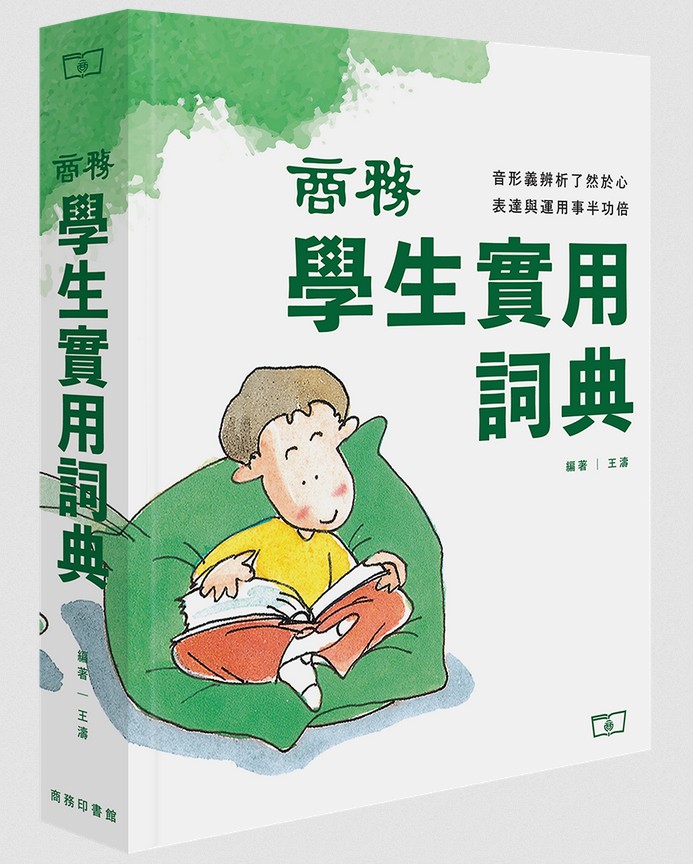
Practical Dictionary for business students
This book is a dictionary for primary school students. It contains 4,345 Chinese characters and 6,910 words. It briefly explains the pronunciation and meaning of the characters, focusing on the meaning and usage of the words. In the explanation of the dictionary, attention is paid to the readers' learning focus at this stage. According to this stage Dictionary content is designed with a learning focus to provide practical and effective help to learners.
Content features:
1. Collect words that meet learning needs
With reference to the Education Bureau's 2007 "Hong Kong Primary School Vocabulary List", based on language research and statistical data from the two sides of the Taiwan Strait and three places, combined with the actual use of language in Hong Kong society, and based on the business corpus, it includes commonly used words and phrases in the first and second stages of Hong Kong primary schools. Four-letter words and idioms.
2. Pay attention to the writing standards of Chinese characters
Fully considering the actual needs of Hong Kong primary school students in learning Chinese characters, in addition to marking the pinyin, strokes, Cantonese pronunciation, etc. of Chinese characters, it also breaks down the order of strokes in writing Chinese characters. It also points out 100 common groups in the exam through the analysis of similar characters and the analysis of glyphs. Words are easily misspelled and confused, such as [impression] - X impression "Xiang" refers to the shape and appearance of things. "Impression" means an image retained in the mind by the senses after being stimulated by the outside world. It helps student readers master orthographic characters and understand correct writing conventions.
3. Pay attention to the analysis, accumulation and application of words
(1) Accumulation and analysis of synonyms and antonyms
Antonyms refer to a word or word that has an opposite meaning. It is usually easier for primary school students to understand and accumulate antonyms. However, synonyms have similar meanings and are easily confused. However, if you can understand the differences in vocabulary from the emotional color, rational meaning, and grammatical characteristics of the words, you can draw inferences and apply them in different contexts. For example, fraud and deceit means using false words and deeds to cover up the truth; bullying, bullying and bullying means violating, oppressing or insulting. The dictionary contains more than 200 sets of synonyms. It not only lists the synonyms and antonyms corresponding to the entry after the meaning, but also analyzes individual synonyms to help students accumulate vocabulary.
(2) Word usage and related word collocation tips
Primary school students are prone to misuse words when speaking and writing, especially the incorrect use of related words. The dictionary contains 100 tips on word usage and fixed collocation of related words, covering nine types of related words that reflect various internal connections in sentence content, including juxtaposition, progression, transition, succession, selection, cause and effect, hypothesis, purpose, condition, etc. For example, [regardless of] - "regardless of...all..." is a fixed combination of related words that indicates that things will have the same result under different circumstances. No matter how her mother explained, her sister refused to listen. It can help students deepen their impression of the correct usage of related words, help students reduce the misuse of related words, and improve their speaking and writing skills.
4. Notes on ancient and modern synonyms
Language has its own stability and inheritance, although the meanings of ancient and modern words may not be exactly the same, nor may they be disconnected. This dictionary refers to the "Suggested Chapters" recommended by the Hong Kong Education Bureau for students taking Chinese language courses in August 2021, selects vocabulary with ancient and modern synonyms in ancient poems and sentences, and collects model sentences under the corresponding entries, such as [Wasted] - Qian Fu's "Song of Tomorrow" "Tomorrow comes tomorrow, there are so many tomorrows! I am waiting for tomorrow, everything will be in vain." Help students understand the meaning of words, understand and feel classic works.
5. The appendix is practical and convenient
The dictionary is based on the actual daily learning needs of primary schools, and includes a Chinese character stroke order rule table, Chinese character radical pronunciation table, etc. for students' daily learning reference.




